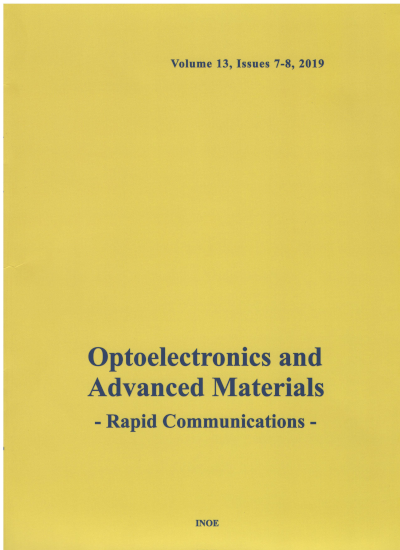Abstract
In this research, poly(butylene succinate) (PBS)/titanium dioxide (TiO2) nanocomposites were prepared by internal melt mixer and compression molding machine. The severe aggregation of TiO2 nanoparticles in polymer matrix were reduced by the modification of TiO2 surface with propionic acid and n-hexylamine. Photodegradation and thermal properties of biopolymer nanocomposites were investigated over a range of filler content 0-10 wt%. All samples with a wide range of filler addition exhibit the translucency. The surface morphology showed that a uniform dispersion of filler in the matrix existed when the nanoparticles content was less than 5 wt%. The results indicated that nanocomposites could be efficiently photodegraded by UV-A, UV-C and solar radiation in comparison with neat PBS. The photodegradability of composites can be efficiently promoted, and the photodegradation rate can be controlled by filler content. The materials exhibited elevated degree of crystallinity (Xc) and decreased melting temperature (Tm) as the nanoparticles concentrations were increased..
Keywords
Poly(butylene succinate), Titanium dioxide, Biocomposites, Surface treatment.
Citation
A. BUASRI, V. LORYUENYONG, Photodegradation and thermal properties of biopolymer nanocomposites based on poly(butylene succinate) and modified titanium dioxide, Optoelectronics and Advanced Materials - Rapid Communications, 9, 1-2, January-February 2015, pp.61-66 (2015).
Submitted at: Dec. 20, 2013
Accepted at: Jan. 21, 2015
